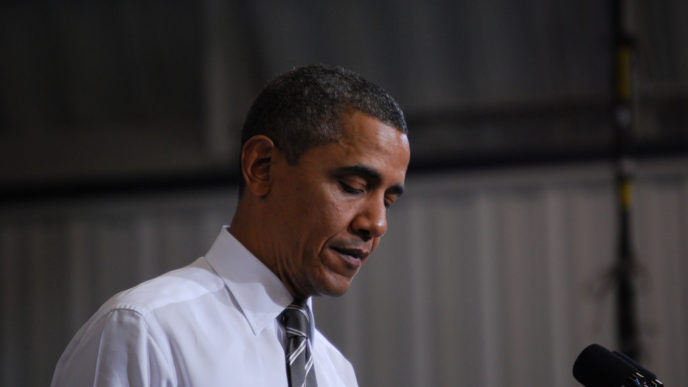The Left’s Decivilization Agenda Comes to Ohio
If a person can become transgender, why can’t a state or another branch of government become trans-judicial?
Our Founders never envisioned that states would remain obsequious to judicial power grabs. But they could never have anticipated, in their wildest nightmares, a day when federal judges would require states to treat boys like girls. Yet, that is exactly what happened in Ohio when Judge Algenon Marbley of the U.S. District Court for the Southern District of Ohio ordered Highland Local School District to treat a boy who thinks he’s a girl “as the girl she is”!
Just like North Carolina, Ohio can’t seem to catch a break from the tentacles of the radical courts. Last week, the Sixth Circuit Court of Appeals prevented Ohio’s Secretary of State from cleaning its voter registration lists of dead voters. Now a district judge is ordering a school district outside of Akron to treat a boy in Highland Elementary School like a girl for all official school business.
After the Education Department’s Office of Civil Rights, prompted by a complaint from the boy’s family, ordered the school district to allow him in female bathrooms and locker rooms, the school officials sued the DOE in federal court for grossly misinterpreting the 1972 Title IX statute as absurdly applying to those suffering from transgender illness. Threatened with the loss of $1 million in Title IX funding, the school district argued that they already went out of their way to accommodate that individual student by allowing him to use a bathroom in the school office. But the parents argued that the boy, who they say had previously attempted suicide, would suffer mental health breakdowns from such an accommodation.
In Monday’s order, Judge Marbley, a Clinton appointee, required the Highland Local School District to allow the child (absurdly referred to as “Jane Doe”) into the girl’s bathrooms and locker rooms. “The Court orders School District officials to treat Jane Doe as the girl she is, including referring to her by female pronouns and her female name and allowing her to use the girls’ restroom at Highland Elementary School,” wrote an irate Judge Marbley.
The judge went on a mind-blowing polemic about how … you guessed it … the Equal Protection Clause of the Fourteenth Amendment likely protects this individual and creates a right to use the opposite gender’s bathroom. “[A]s a tiny minority of the population, whose members are stigmatized for their gender non-conformity in a variety of settings, transgender people are a politically powerless minority group.”
Sadly, this is no April Fool’s joke. The unelected judges and bureaucrats at the DOE are using a 1972 statute and an 1868 amendment that was designed to stop real discrimination against fundamental rights to codify the most absurd distortion of natural law — the very source of fundamental rights.
There is no end to the absurdity of this de-civilization agenda. There are all sorts of unfortunate mental disorders in the world that deserve treatment and compassion from the society. But nobody would ever suggest that we codify the hallucinatory behavior of those stricken with the disorders into practice, law, the Constitution, and inalienable rights. What if a schizophrenic student who legitimately exhibited suicidal behavior demanded to be treated as a killer whale and asked for the school district to allow him to sit in a water tank during class? Or what if the student demanded to be referred to as “it” in all documentation? Would this stigmatized super-minority not be entitled to the same degree of “privacy” and “equal protection?”
The Ohio case is a quintessential example when states must simply say no and refuse to comply with the most ludicrous debasements of fundamental rights and the worst usurpations of power by the two unelected branches of the federal government. Even the elected branch of the federal government could never order a state to engage in such absurdity. How can the DOE and the courts be taken seriously for a minute?
Folks, we are like frogs in boiling water who become desensitized to the sharp increase in the temperature of cultural licentiousness. Even those on our side are beginning to adopt much of the Left’s premise and use the absurd and illogical parlance about sexual identity mental disorders. What is it going to take to arouse the states and the people from their slumber as the federal judiciary initiates the most outrageous societal transformation imaginable? Why are the federally elected representative of states like Ohio and North Carolina not fighting to defund the DOE transgender mandate in the budget bill? Why are they not countering the stolen sovereignty from the courts with congressional powers?
It’s time for a new Tea Party, a new movement within the states to fight back against judicial and executive reach. After all, if a boy with male plumbing can be deemed a girl, why can’t a state self-identify as a Supreme Court and control its own destiny? (For more from the author of “The Left’s Decivilization Agenda Comes to Ohio” please click HERE)
Follow Joe Miller on Twitter HERE and Facebook HERE.










